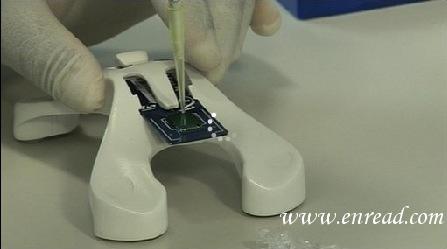| ||||||||||||||||||||||||||||||||||||||||||||||||||||||||||||||||
|
Scientists from Glasgow University claim they have created a device which can detect malaria1 within minutes. 格拉斯哥大学的科学家声称他们已经发明了一种可以在几分钟之内检测疟疾的设备。 The device can detect which strain of malaria is in the blood Doctors have welcomed the development as more travellers go abroad without taking proper precautions(预防,留心) against the disease. The flu-like symptoms(症候) can be missed until the patient is critically ill. Blood samples are placed in the microchip, which is designed to detect the strain(紧张,拉进,血统) of disease. This means the best drug can be used to treat it. Last year a study revealed more cases of the most dangerous type of malaria than ever before are being brought back to the UK from trips abroad. The Health Protection Agency study identified 6,753 cases of falciparum malaria(恶性疟疾) diagnosed between 2002 and 2006. Experts said many of the cases arose from visits to west Africa made by people visiting relatives and friends. Project leader Dr Lisa Ranford-Cartwright said: "The current way of diagnosing is using a blood smear2(涂,擦) on a slide and examining it on a microscope. "That will take a good microscopist a good hour to reach a diagnosis3, it's extremely difficult to make that diagnosis accurately4. "The chip can give us a result in as little as half an hour." Dr Heather Ferguson, a malaria(疟疾) researcher, picked up the disease in southern Kenya and it was only spotted5 by chance when she was giving a blood sample. She said: "Had I not been diagnosed at that moment and caught it within the next 24 hours all those millions of parasites6(寄生振荡,寄生效应) would have replicated7(折叠,复写) one more time, making eight times as many as there had been before, which could very easily have been lethal8(致命的)." 点击  收听单词发音 收听单词发音
|
||||||||||||||||||||||||||||||||||||||||||||||||||||||||||||||||
- 发表评论
-
- 最新评论 进入详细评论页>>




